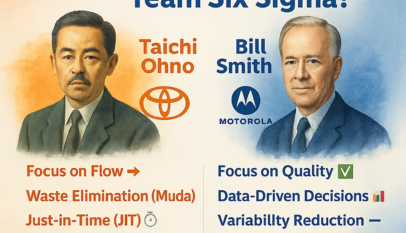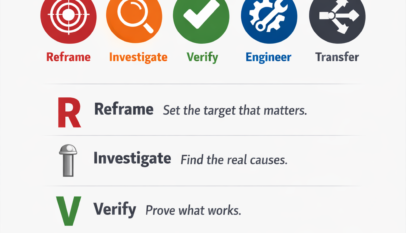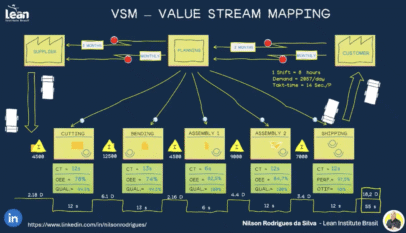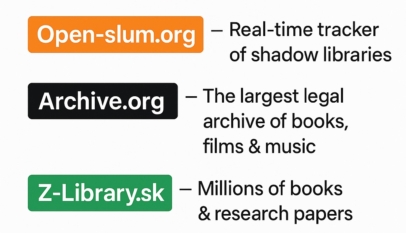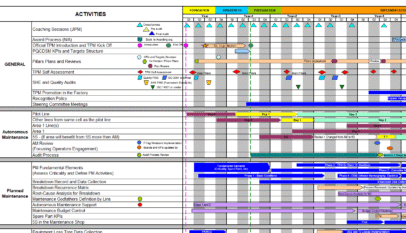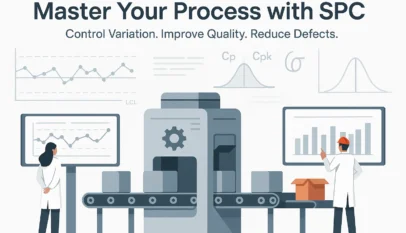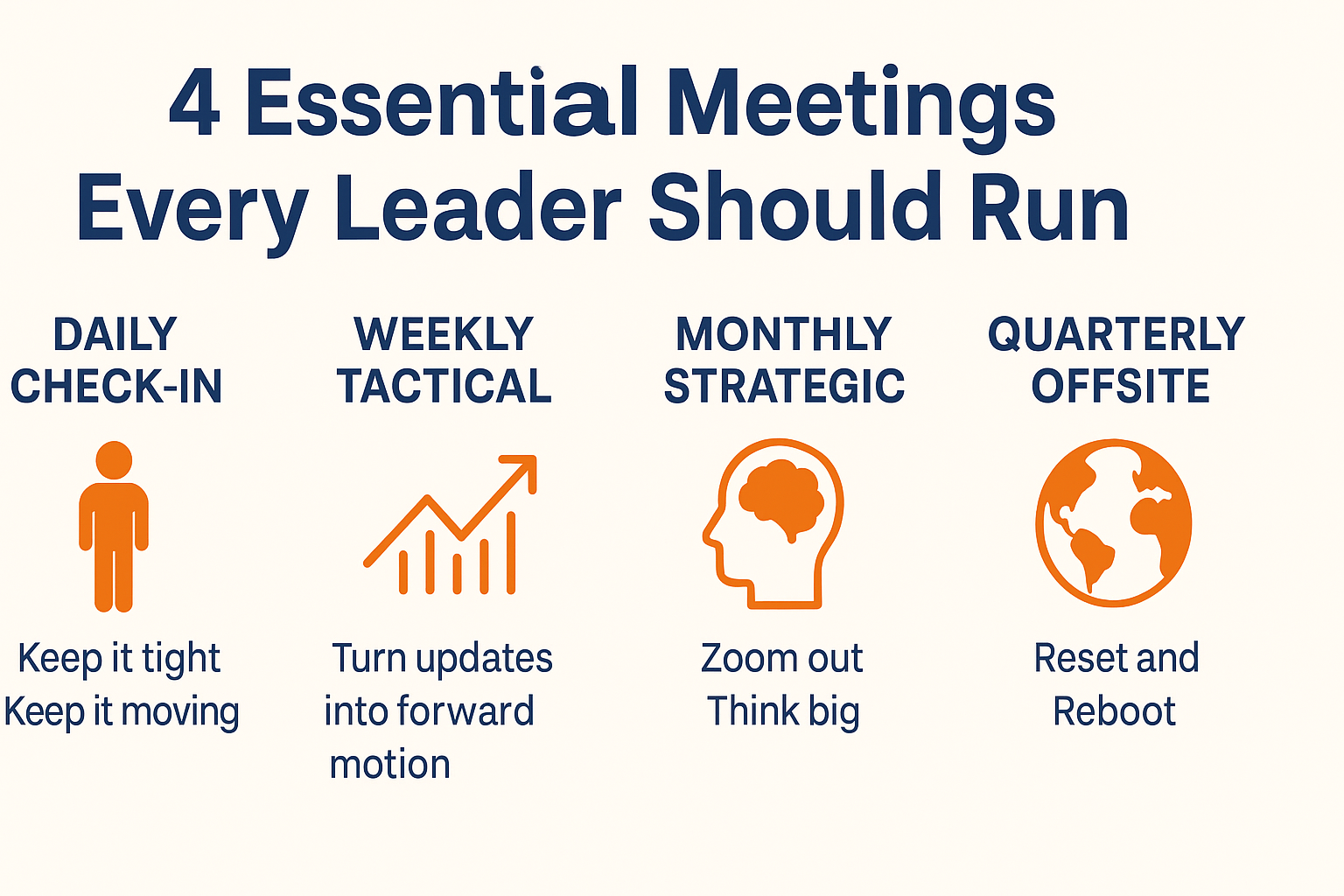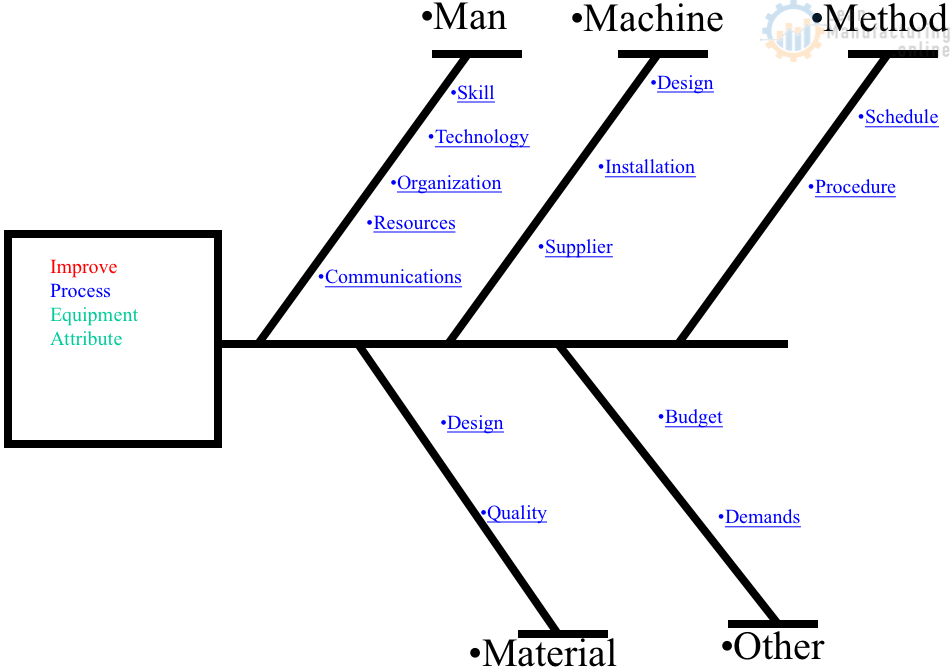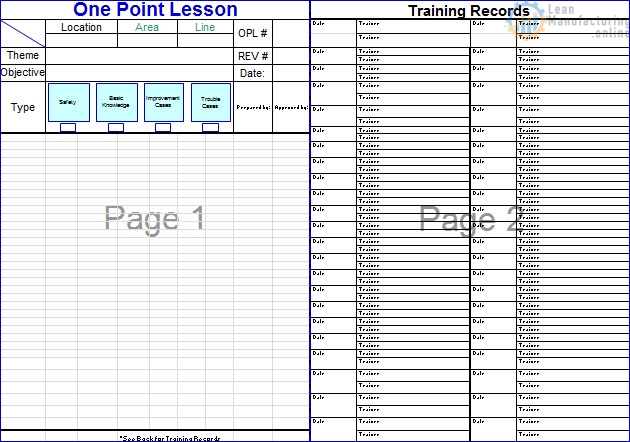Introduction
Greetings and welcome! Get ready to explore “The Comprehensive Roadmap to Project Management Excellence”! This guide covers all aspects of project management and provides you with proven strategies to enhance your skills as a project manager. Let’s embark on a journey towards developing your project management skills using these effective techniques. With dedication and effort, you can enhance your abilities and set yourself up for a fulfilling and prosperous career.
Master Project Design and Chronology
The Pillars of Success
- Project designing and timing form the cornerstone of exemplary project management.
- A potent weapon in your arsenal for dissecting complicated projects is the Work Breakdown Structure (WBS).
Crafting a Robust WBS
- Spotlight the primary project outputs.
- Fragment each output into more digestible tasks.
- Continue this fragmentation until tasks reach a manageable scale.
With a comprehensive WBS, you can devise a realistic project timeline utilizing tools like Gantt charts. Ensure to include task interdependencies, timeframes, and resources. Regular surveillance of your project timeline throughout the project’s life cycle empowers you to detect and mitigate any lags promptly.
Formulate Transparent Project Aims and Objectives
The Key to Success
- Establishing transparent project aims and objectives is the key to successful project management.
- Use the SMART framework to guide your objective-setting:
The SMART Framework
- Specific: Define your desired result with clarity.
- Measurable: Assign a quantifiable value to the result for progress tracking.
- Achievable: Validate the feasibility of the objective, considering resources and constraints.
- Relevant: Align the objective with project and organizational priorities.
- Time-bound: Affix a deadline for objective completion.
Employing SMART aims and objectives provides your team with a clear trajectory and instills motivation. Regularly assess progress against your objectives to ensure your project remains on the right path.
Construct and Supervise Project Budgets
Building a Detailed Budget
- Identify all required resources, such as manpower, materials, and equipment.
- Calculate the cost of each resource.
- Reserve a contingency fund for unexpected expenditures.
- Add up the costs to derive the total project budget.
Regular monitoring of project expenses is crucial to ensure you stay within budget. If costs start to overshoot the budget, diagnose and address the root cause to avert further financial complications.
Oversee Project Progress and Implement Adjustments
The Importance of Monitoring
- To effectively oversee project progress, establish Key Performance Indicators (KPIs) that align with your project objectives.
Key KPIs
- Budget variance
- Schedule variance
- Quality metrics
Monitor these KPIs throughout the project to spot potential issues and take corrective actions as needed. Regular project status meetings and progress reports are vital for keeping stakeholders informed and engaged.
Cultivate Effective Stakeholder Communication
Keys to Success
- Successful project managers are adept at forging a productive dialogue with stakeholders.
- Crafting a stakeholder communication strategy is a step towards this:
Building a Communication Strategy
- Pinpoint key stakeholders and discern their communication predilections.
- Establish the rhythm, framework, and substance of communications.
- Delegate the duty of delivering communications.
A well-structured communication strategy ensures stakeholders remain well-informed and actively engaged throughout the project lifecycle.
Administer Project Risks and Challenges
Importance of Risk Management
- Proficient risk management is a core competency for project managers.
- To devise a risk management plan:
Developing a Risk Management Plan
- Identify potential risks and challenges.
- Evaluate their probability and potential repercussions.
- Formulate risk mitigation strategies and backup plans.
Consistently review and refresh your risk management plan to guarantee its relevance and effectiveness.
Lead and Invigorate Your Project Team
Building a High-Performing Team
- A motivated and top-performing project team is instrumental to project success.
- To cultivate such a team:
Tips for Team Leadership
- Convey project aims and objectives with clarity.
- Deliver regular feedback and recognition.
- Foster a culture of collaboration and transparent communication.
You can bolster improved project performance by nurturing a positive work climate and backing your team members.
Establish a Robust Change Management Procedure
Dealing with Change
- Change is a constant in projects, and its effective management is paramount.
- To cultivate a sturdy change management procedure:
Designing a Change Management Procedure
- Formulate a change request form to record the necessary information.
- Set up a Change Control Board to scrutinize and sanction requests.
- Implement sanctioned changes and update project documentation accordingly.
A well-orchestrated change procedure curtails disruptions and secures stakeholder acceptance.
Stay Abreast with Project Management Methodologies
Understanding Methodologies
- Comprehending various project management methodologies is vital for success.
- Some renowned methodologies include:
Popular Methodologies
- Waterfall: A linear, sequential model with distinct stages.
- Agile: An iterative model with brief, incremental development cycles.
- Scrum: A subset of Agile that underscores collaboration and swift decision-making.
- Kanban: A visual model that stresses work-in-progress limits and continuous improvement.
To keep abreast with methodologies and best practices, engage in professional development opportunities, such as workshops, industry events, and online courses.
Tailor Your Approach to Varied Projects and Industries
Adapting to Differences
- Different projects and industries may necessitate distinct project management approaches.
- To effectively tailor your style:
Steps for Adaptation
- Probe into industry-specific demands and best practices.
- Customize your project management methodologies based on project breadth and intricacy.
- Welcome new challenges and extract learning from each project.
You can excel as a project manager across diverse industries and projects by maintaining flexibility and adaptability.
Employ Project Management Software and Tools
Enhancing Efficiency
- Project management software can amplify collaboration and efficiency.
- Some popular choices include:
Popular Tools
- Microsoft Project: A robust project planning, scheduling, and tracking tool.
- Trello: A visual tool for task and workflow organization using boards, lists, and cards.
- Asana: A task management tool ideal for assigning, tracking, and collaborating on tasks.
Investigate various software options and pick the one that aligns best with your project necessities and team preferences.
Facilitate Smooth Project Handover and Closure
Ensuring Client Satisfaction
- An organized project handover procedure is crucial for client satisfaction.
- To guarantee a successful handover:
Steps for Smooth Handover
- Compile comprehensive project documentation encompassing lessons learned and final project reports.
- Provide training and support to the client’s team during the transition.
- Organize a project closure meeting to celebrate accomplishments and collect feedback.
Adhering to an organized handover procedure can ensure a smooth transition and lay the groundwork for future project success.
Continually Enhance Your Project Management Skills
Ongoing Development
- Persistent professional development is vital for career progression.
- To enhance your skills:
Steps for Skill Development
- Establish personal targets for skill development and pledge to regular self-evaluation.
- Solicit feedback from peers, supervisors, and team members.
- Engage in industry events, workshops, and online courses to stay updated on best practices and trends.
You can excel as a project manager and elevate your career by continually investing in your professional growth.
Hone Negotiation and Conflict Resolution Skills
Importance of Negotiation Skills
- Effective negotiation and conflict resolution are pivotal for project managers.
- To augment these skills:
Steps to Improve
- Cultivate active listening and empathetic communication.
- Concentrate on discovering win-win solutions that cater to the needs of all parties.
- Discern when to compromise and when to hold your ground.
Refining your negotiation and conflict-resolution skills can foster stronger relationships and resolve issues more effectively.
Comprehend and Follow Relevant Regulations
Importance of Compliance
- Conformity with relevant regulations is crucial for successful project management.
- To ensure compliance:
Steps to Ensure Compliance
- Investigate pertinent laws and standards for your project and industry.
- Formulate a compliance checklist to steer your team’s efforts.
- Supervise project activities to guarantee adherence to regulations.
Understanding and following relevant regulations can reduce risk and safeguard your organization’s reputation.
Nurture Relationships with Clients and Vendors
Building Strong Relationships
- Robust relationships with clients and vendors contribute to project success.
- To construct and preserve these relationships:
Steps to Maintain Relationships
- Communicate routinely and transparently.
- Exhibit professionalism and dependability.
- Express gratitude and acknowledge their contributions.
You can establish a network of valuable partners and resources for future projects by fostering positive relationships.
Supervise and Control Project Quality
Importance of Quality Management
- Project quality management ensures the final deliverable aligns with stakeholder expectations.
- To supervise and control project quality:
Steps for Quality Management
- Determine quality requirements and metrics.
- Set up a quality management plan, including quality assurance and control processes.
- Conduct regular quality reviews and inspections to identify and address issues.
Maintaining a focus on quality throughout the project ensures the result meets or exceeds stakeholder expectations.
Keep Abreast with Industry and Market Trends
Staying Informed
- Keeping informed about industry and market trends is essential for successful project management.
- To stay updated:
Steps to Stay Updated
- Subscribe to industry newsletters and publications.
- Join professional organizations and partake in industry events.
- Network with other professionals to exchange insights and ideas.
Keeping up-to-date with trends and advancements can aid in making informed decisions and recognizing innovative opportunities within projects.
Delegate Effectively and Empower Your Team
The Power of Delegation
- Effective delegation is a linchpin of efficient project management. To delegate tasks successfully:
Steps to Successful Delegation
- Specify the task, its objectives, and its requirements.
- Choose the ideal team member for the task, considering their capabilities, workload, and development needs.
- Provide the necessary resources and support, and empower team members to make decisions.
By delegating tasks effectively, you can allocate more time for strategic project management activities and aid your team members in expanding their skills.
Foster a Growth Mindset
Embracing Continuous Improvement
- Adopting a growth mindset is a cornerstone of continual improvement in project management. To embrace this mindset:
Steps to Foster Growth
- Perceive challenges as opportunities for growth and learning.
- Reflect on project successes and failures to pinpoint areas for improvement.
- Seek feedback from others and apply it to your professional development.
Adopting a growth mindset can perpetually enhance your project management skills and attain greater career success.
Enhance Emotional Intelligence
The Role of Emotional Intelligence
- Emotional intelligence (EI) is critical for effective project management as it entails understanding and managing your own emotions and those of your team members. To improve your EI:
Steps to Improve Emotional Intelligence
- Practice self-awareness and self-regulation to manage your emotions effectively.
- Develop empathy to comprehend the needs and feelings of others.
- Enhance your social skills to communicate effectively and build strong relationships.
Enhancing emotional intelligence can create a positive work environment and foster improved collaboration and productivity.
Build Your Professional Network
The Importance of Networking
- Networking is essential for career growth and access to valuable resources and information. To build a strong professional network:
Steps to Expand Your Network
- Attend industry events, conferences, and workshops to meet other professionals.
- Participate in online forums, discussion groups, and social media platforms related to project management.
- Nurture relationships with mentors and peers who can provide guidance and support.
Creating a strong network allows you to keep up with current industry trends, exchange effective strategies with others, and obtain beneficial resources that will improve both your project management abilities and future career opportunities.
Prepare for Certification (Optional)
Advantages of Certification
- Pursuing relevant project management certifications can enhance your credibility and career prospects. Popular certifications include:
Key Project Management Certifications
- PMP (Project Management Professional): A globally recognized certification offered by the Project Management Institute (PMI). It demonstrates your competency in leading and directing projects.
- CAPM (Certified Associate in Project Management): PMI also offers this certification for those new to project management or with less experience. It demonstrates your understanding of fundamental project management concepts.
- PRINCE2 (Projects IN Controlled Environments): A widely used project management methodology and certification offered by AXELOS. It is particularly popular in Europe and focuses on process-driven project management.
Steps for Certification Preparation
- Understand the certification requirements: Each certification has specific eligibility criteria, such as educational background and project management experience. Ensure you meet these requirements before applying.
- Review the exam content: Familiarize yourself with the exam objectives and topics. Study the PMI’s “A Guide to the Project Management Body of Knowledge (PMBOK Guide) for the PMP and CAPM exams.” For the PRINCE2 exam, review the “Managing Successful Projects with PRINCE2” manual.
- Create a study plan: Develop a study schedule that allocates sufficient time for each topic, including time for practice exams and reviews. Stick to your plan to ensure consistent progress.
- Utilize exam preparation resources: Take advantage of available resources such as online courses and study guides.
Utilize Exam Preparation Resources
- Use resources such as online courses, study guides, and practice exams. Some popular options include PMI’s official training materials, Rita Mulcahy’s PMP Exam Prep book, and PRINCE2 Foundation and Practitioner training courses.
- Join study groups or forums: Engage with other professionals preparing for the same certification. Share resources, discuss challenging topics, and provide mutual support.
- Take practice exams: Regularly test your knowledge with practice exams to track your progress and identify improvement areas. Adjust your study plan based on your performance in these exams.
With the help of these tactics and accessible tools, you can adequately prepare for your desired project management certification exam and boost your career opportunities.
Embrace the Traditional Project Management Mindset
Traditional Project Management Principles
- Continuously identify and analyze stakeholders throughout the project.
- Adhere to the project plan and permit changes only via approved change requests.
- Require stakeholders to submit change requests to modify any aspect of the project management plan.
- Thoroughly evaluate and assess each submitted change request.
- Always develop a detailed plan before implementing any actions.
- Seek advice from the project team for practical and informed decision-making.
- Make final decisions that align with the project’s objectives and goals.
- Opt for using accessible tools like whiteboards rather than complex software.
Embrace the Agile Project Management Mindset
Agile Project Management Principles
- Embody a servant-leader approach, empowering your team and removing obstacles.
- Collaborate with the product owner to document and prioritize features in the product backlog.
- Ensure that only the product owner is responsible for prioritizing features within the product backlog.
- Implement co-location strategies to enhance team communication and collaboration.
- Prioritize face-to-face communication, using tools like whiteboards and markers for visual aid.
- Encourage the project team to tackle and resolve issues while offering support and coaching.
- Foster a safe environment where disagreements and differing opinions are respected and valued.
When you adopt these principles, you can adjust to various project environments and methodologies, resulting in favourable project outcomes.
PMP®/CAPM® Formulas Cheat Sheet here
🔍 Demystifying Project Management Methodologies
💡 Agile: More than a methodology, Agile is an approach that brings flexibility and iterative design to the table. It’s a toolkit for those extensive projects that live and breathe in dynamic environments, earning it a special place in customers’ hearts.
🎯 Kanban: Inspired by lean principles, Kanban is a productivity powerhouse, slashing wasted time and resources. A perfect partner to Agile, it enables teams to work smarter, not harder.
🚀 Lean: Lean methodology is your secret weapon against waste. By cutting out wasteful activities and focusing on those that add value, Lean gives your process a much-needed trim. After all, who doesn’t love efficiency?
✅ Six Sigma: A brainchild of Bill Smith from Motorola and later popularized by Jack Welch at GE, Six Sigma is all about process improvement. Rooted in the DMAIC (Define, Measure, Analyze, Improve, Control) process, Six Sigma is your guide to better, more streamlined processes.
🌊 Waterfall: Simple yet effective, Waterfall is your go-to methodology for meticulously planned projects. With each task clearly defined from the get-go, your team can flow from one task to the next like a waterfall – smoothly and predictably.
Updated on Jun 30, 2023

